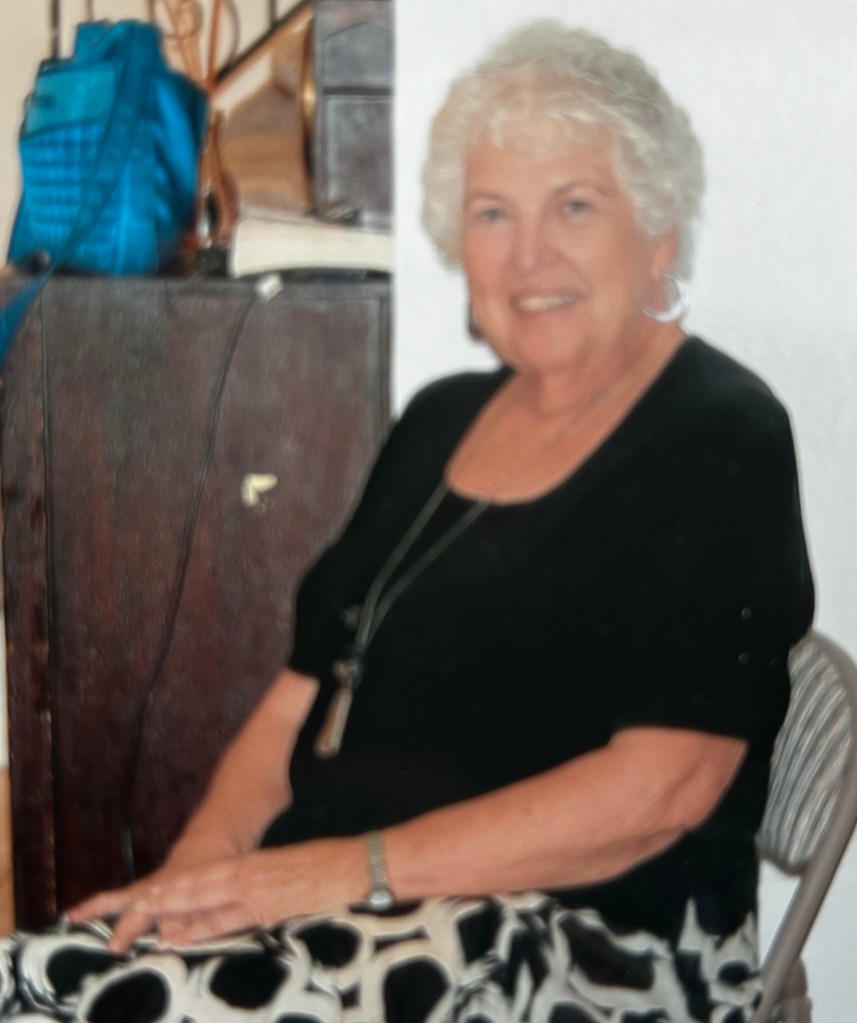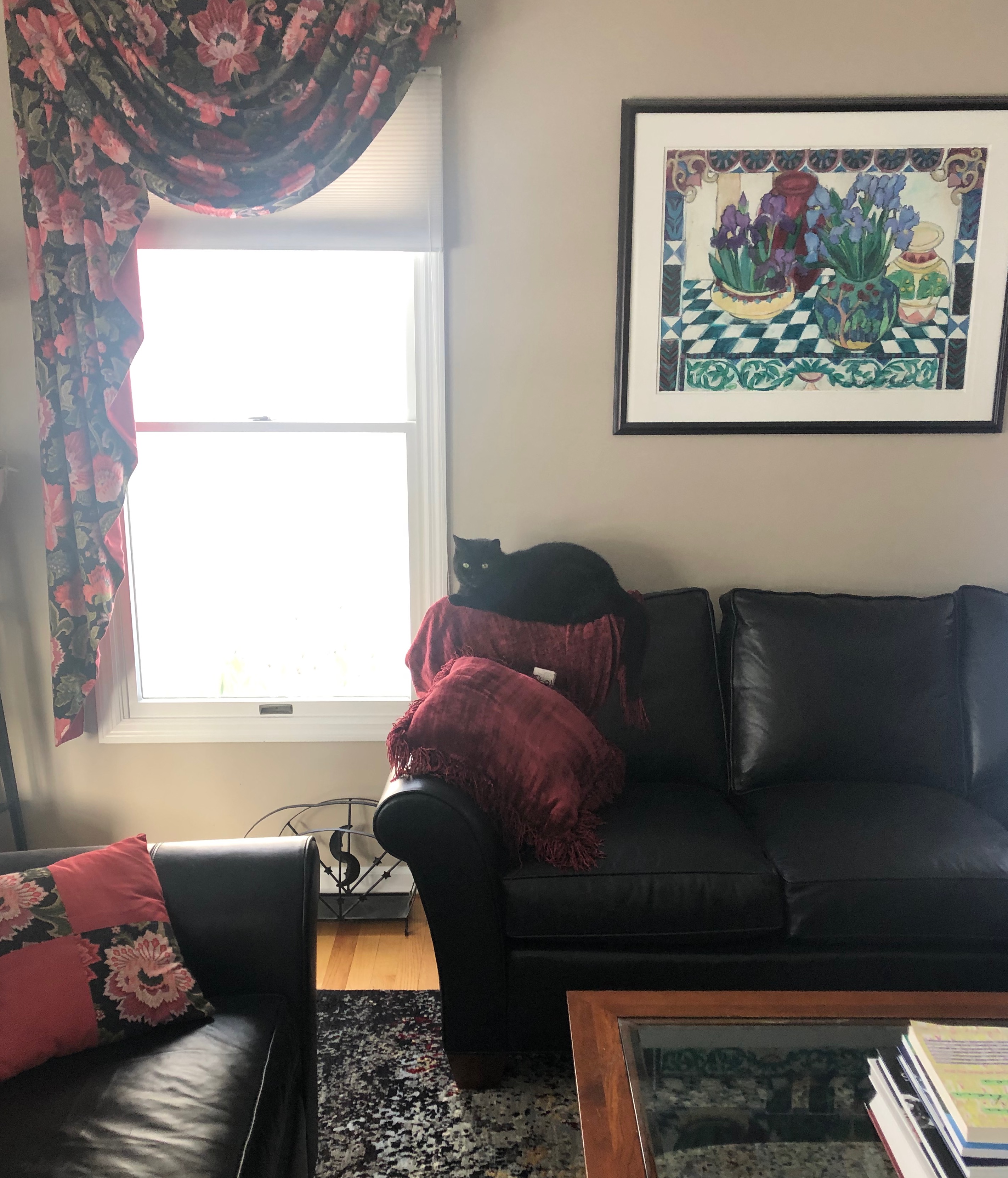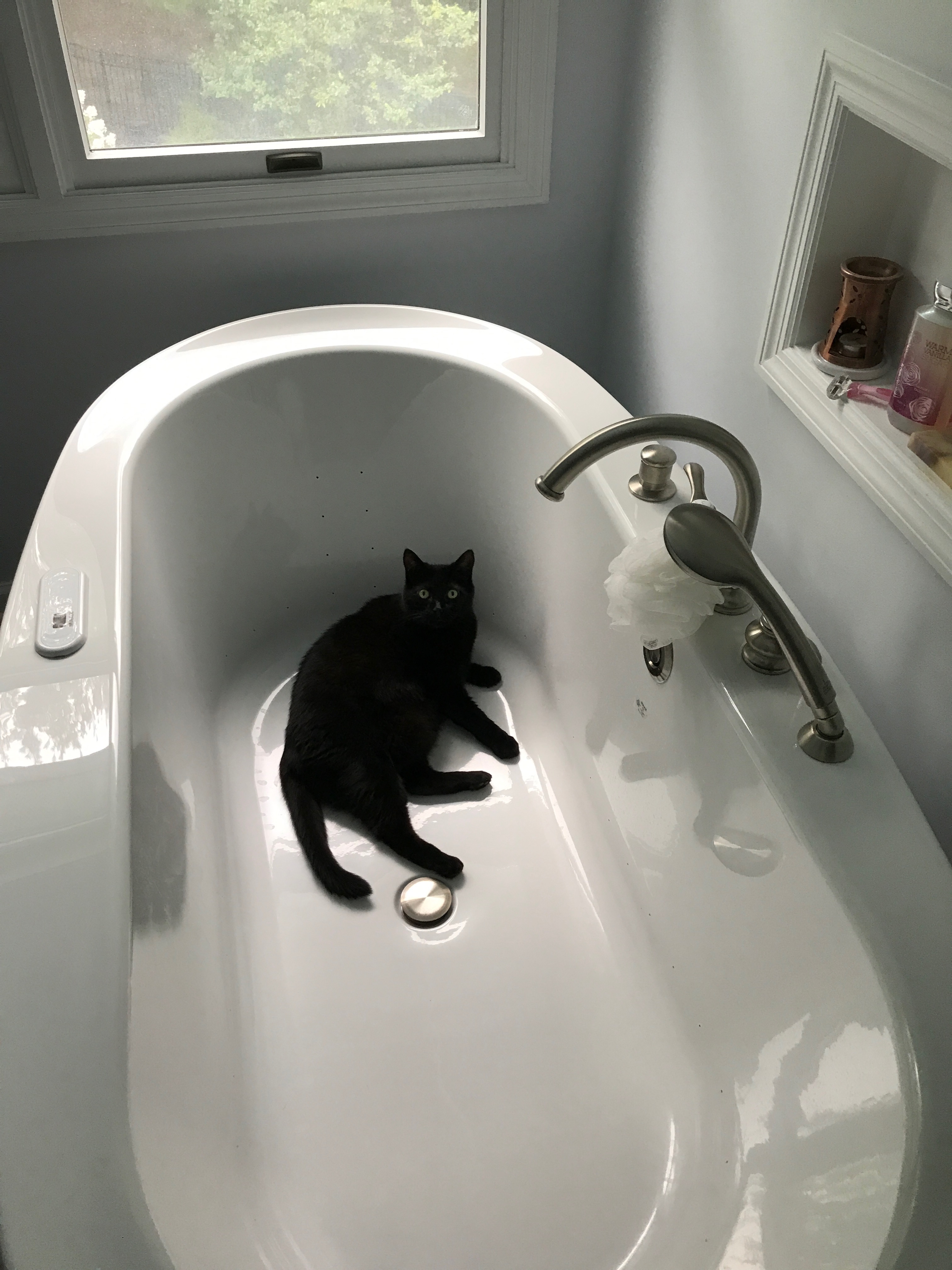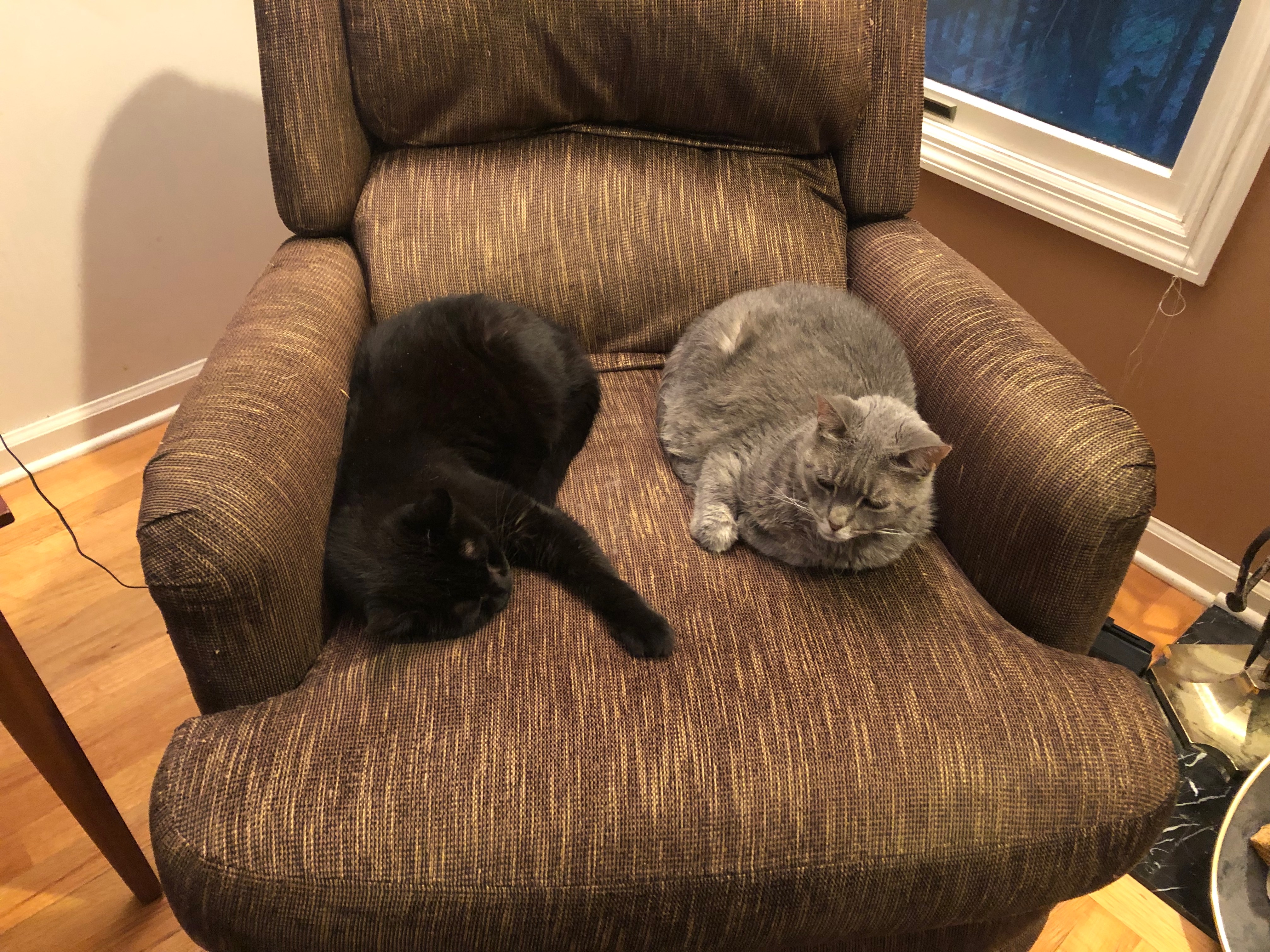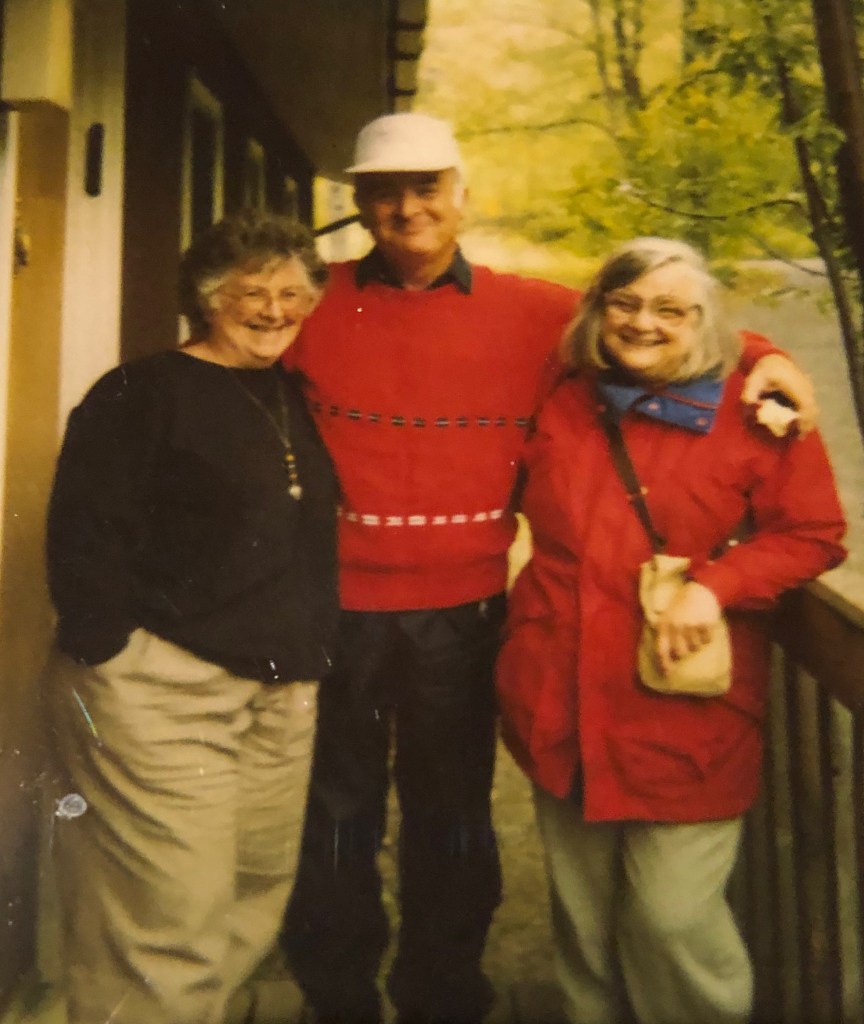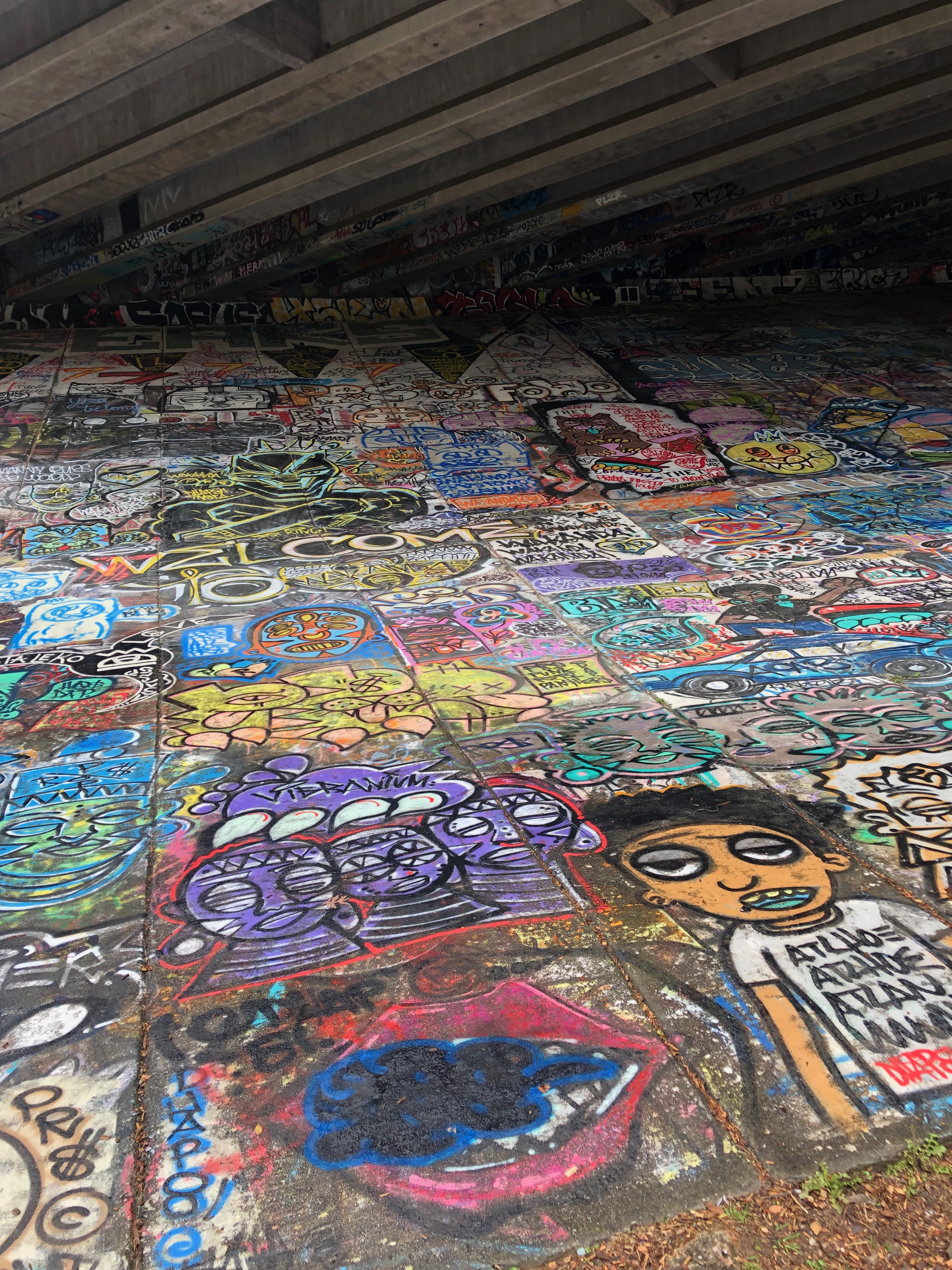After Mom died at the end of February, I felt like I needed a reset. The last couple of years have been difficult. Though I was not the primary caregiver for either my mother or Aunt Clair, I was very involved in their medical decision-making. I accompanied them to doctors’ appointments. I visited them and tried to provide comfort. It was a painful process watching them deteriorate and being powerless to change the inevitable. Not to mention the grief I felt and feel when they were gone.
I also faced my own abdominal surgery to remove what turned out to be a benign cyst – it was actually my left adrenal gland that had hemorrhaged. While I only had a long weekend of worry before I knew it wasn’t cancer, it was still surgery under general anesthesia. The recovery was uneventful, but not without its discomforts.
All of the stress involved in these circumstances left me drained. I was not taking good care of myself. I was on the road a lot, driving over three hours each way to see Mom, and making poor food choices, stopping at Dunkin’ Donuts or McDonald’s instead of finding healthier options. There is a long tradition in my family of seeking comfort in food and I succumbed to that impulse too many times.
I thought it would be helpful if I could go someplace and gather my thoughts, get into a better rhythm. I have never gone on a retreat before, but the idea appealed to me. I wasn’t looking for spa treatments, though a massage might be nice. I was imagining some yoga, healthy food, a walk in the woods. I heard of some places like Kripalu in the Berkshires, Omega Institute in Rhinebeck in the Hudson Valley, and Canyon Ranch in several locations.
I looked them up online and read what they offered. Kripalu seemed closest to what I was looking for. I talked to Gary about it and he was fully supportive. I signed myself up for three days of retreat and renewal. They offered structured programs of varying lengths, but I wasn’t so much interested in something that formal. I wanted more flexibility. Fortunately they offered that option too.
Kripalu offers different levels of accommodations which are priced accordingly. I chose a private, dorm-style room where the bathroom would be on the hall. The idea of sharing a bathroom didn’t bother me, but I wasn’t looking for a roommate.
As I anticipated my time away, I was a bit nervous. I had not done yoga in years. There was a time, about a decade ago, where I was doing it regularly but I was never a serious student of it. I was afraid I would be in over my head. Perhaps people who went to these things were committed yoga practitioners. I called Kripalu, before I put my money down, and asked: Is this appropriate for someone of my age and level of experience (or lack thereof)? I was reassured that they offered programming that met me where I was.
I was still nervous about it, but decided I would take the risk. What’s the worst that would happen? I would try a class and if I really couldn’t manage it, I didn’t have to go again. The classes were voluntary. I could spend my time reading, relaxing and taking in the Berkshires if it came to that.
It didn’t come to that. I had a great experience.
I checked in and got settled in my room. It was small, like a single dorm room. It did have a sink which I appreciated. It also had a lovely view of the lake, they call it the Stockbridge Bowl.

This would be the first time since college that I would use a communal bathroom and shower. I wondered if it would bother me. It didn’t. They kept it spotless, and I think during my three days I might’ve crossed paths with another person only a couple of times.
I studied the schedule of classes/workshops and planned out my time. They told me that Gentle Yoga would be appropriate for me. They offered more vigorous classes, but I was quite challenged by the gentle version. The biggest difference from ten years ago was my balance, though my flexibility and strength weren’t what they used to be either. But I didn’t feel self-conscious about it. Everyone seemed to be focused on themselves and the teachers were encouraging. I did the best I could and felt reasonably good about it. I did a yoga class once each day. As I remembered from my previous experiences, I particularly enjoyed Savasana, the final ten minutes when you lay on your back (or choose a comfortable position) close your eyes and breathe while soft, soothing music plays…very calming.
I took two hikes. Each was guided by a staff person. I loved the approach they took. They began with a short meditation, and they suggested that during the walk out – in one case we hiked down to the side of the Stockbridge Bowl (walking through some woods and meadows in route) and the other we climbed up to a pond – that we walk in social silence. In other words, we traveled as a group, but without chatting. They wanted us to pay attention to our surroundings, listen, see and smell nature. They asked that we leave our phones in our pockets, not even to take pictures. I thought that was great – took the pressure off. When we arrived at the destination we sat quietly for a few minutes. In one case the guide read us a poem. After a time of taking it all in, the guide said if folks wanted to take photos or chat, they were welcome to; if you wanted to continue in silence, that was fine too. On each return trip I chatted with people. It was a great balance. I did notice a difference in how much I took in when we walked quietly versus when I talked with someone, but I enjoyed both experiences in different ways. Here are some views from my hikes:



Another interesting aspect of Kripalu is that they ask that breakfast be eaten silently. There are signs up around the dining hall and other spaces where you can take your meal asking that you respect the silence. (In fact some folks come to Kripalu for a silent retreat – they spend their days in silence.) The sign on the table explained that they urged you to be present while you were eating your first meal of the day – to pay more attention to the tastes and how your body felt. Again, I found it to be a great practice. This only applied to breakfast, other meals were social. For all meals, though, they ask that you not use electronic devices – they preferred that you use a physical book, but people did use e-readers. The prohibition on electronic devices extended all over the campus. There were designated areas where they were permitted and of course you could use them in your room. I loved being free of my phone. Most of the time I left it in my room, unless I knew I wanted to use the camera.
I have more to share about the workshops I took, but I will save that for another essay. It has been over a month since I returned from my retreat. While I wish I felt as energized as I did in the days immediately after my return, I can’t say that is true. I do carry the lessons I learned, the peacefulness I experienced and the spirit of it within me. I am sure I will return to do it again.
